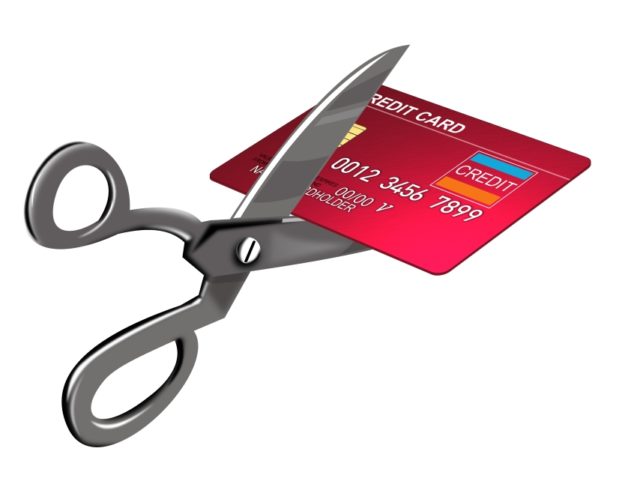
our credit score determines everything from the purchases you make to the credit cards you qualify for. Yet not everyone is aware of what makes up their score and what factors affect it.
A recent Bankrate survey found that 29 percent of Americans don’t know whether or not closing a credit card will hurt their credit score, 15 percent think it has no effect and 13 percent incorrectly believe it will increase their credit score.
Understanding what affects a credit score — such as credit card debt — and what makes up a score is crucial in order to make good financial choices to maintain or build a healthy credit score.
What goes into a credit score
A credit score takes into account five categories: payment history, credit usage, credit history, new credit and types of credit.
Your credit card payment history makes up 35 percent of your credit score and takes into account bill payments — whether or not you regularly made payments on time or acquired any late fees.
Thirty percent of your score is determined by your credit utilization, or how much of your available credit you’ve borrowed. Most institutions recommend keeping a ratio of 30 percent and under.
Credit history, or the length of time your accounts have been open, makes up 15 percent of your score. This factor can put a strain on those just starting out. Luckily, starter and student credit cards are an option to help ramp up your credit history.
Lastly, new credit and credit mix each comprise 10 percent of your score. New credit focuses on the number of accounts you’ve recently opened and credit mix includes any loans, credit cards or mortgages you might have. Owning multiple accounts and managing them responsibly is a positive sign to lenders, meaning you’ll be able to continue borrowing in the future.
Common factors that can affect your credit score
When you cancel a card, you risk a few negative effects as a result: your credit history shortening, your credit utilization ratio increasing and your credit mix decreasing.
Credit card cancellation
Canceling a card can dramatically shorten your overall credit history as depicted on your credit report, and accounts that have been open for multiple years are at the biggest risk of being impacted. The longer your account has been open, the more important it is.
By closing a card, you’ll have less credit available to you. This decrease in credit available can negatively impact your credit utilization ratio by raising it. You’ll especially be at risk if you don’t pay off your card in full each month or tend to keep high balances.
Credit mix can also be impacted. If you only have two cards, for example, closing one of them will result in a much less robust credit mix — especially if you don’t have additional financial obligations like a car, mortgage or student loan.
Other factors
Missing credit card payments and not paying your monthly bills on time are more commonly known to affect credit scores. Yet applying for too many cards and once, as well as not using your card enough, can also have an impact.
Multiple card applications
New credit, which makes up 10 percent of your score, can be affected if you apply for multiple cards at once. Every time you apply for a new card, a hard credit check is run — meaning lenders look through your credit history. If you already have a good credit score, a hard credit check will have a minimal impact, yet a lower score may be more heavily affected.
Other than the potential impact of hard credit checks, lenders may take multiple inquiries as a sign of financial troubles or may assume you’re expecting to get denied by a handful of lenders.
To minimize these threats to your credit score, ensure your score is within the accepted range for whichever card you’d like to apply for and try to stick to one application.
Card inactivity
When you don’t use a card for an extended period of time, you run the risk of your credit card issuer closing your account.
According to the Credit Card Accountability Responsibility and Disclosure Act of 2009, issuers have the right to cancel credit cards for a variety of reasons, including card inactivity. Issuers are required to give a 45-day notice of card cancelation in most cases, but not in the case of inactivity
To avoid this scenario, try and make a handful of purchases on your card each month, whether it’s your daily coffee or recurring monthly subscription service.
The bottom line
No matter what your credit score is, you can benefit from knowing what goes into it and how different factors — like canceling a card or applying for multiple cards at once — can affect it.
For more information on how to improve your credit score, read our recent guide on seven ways to boost your score.












